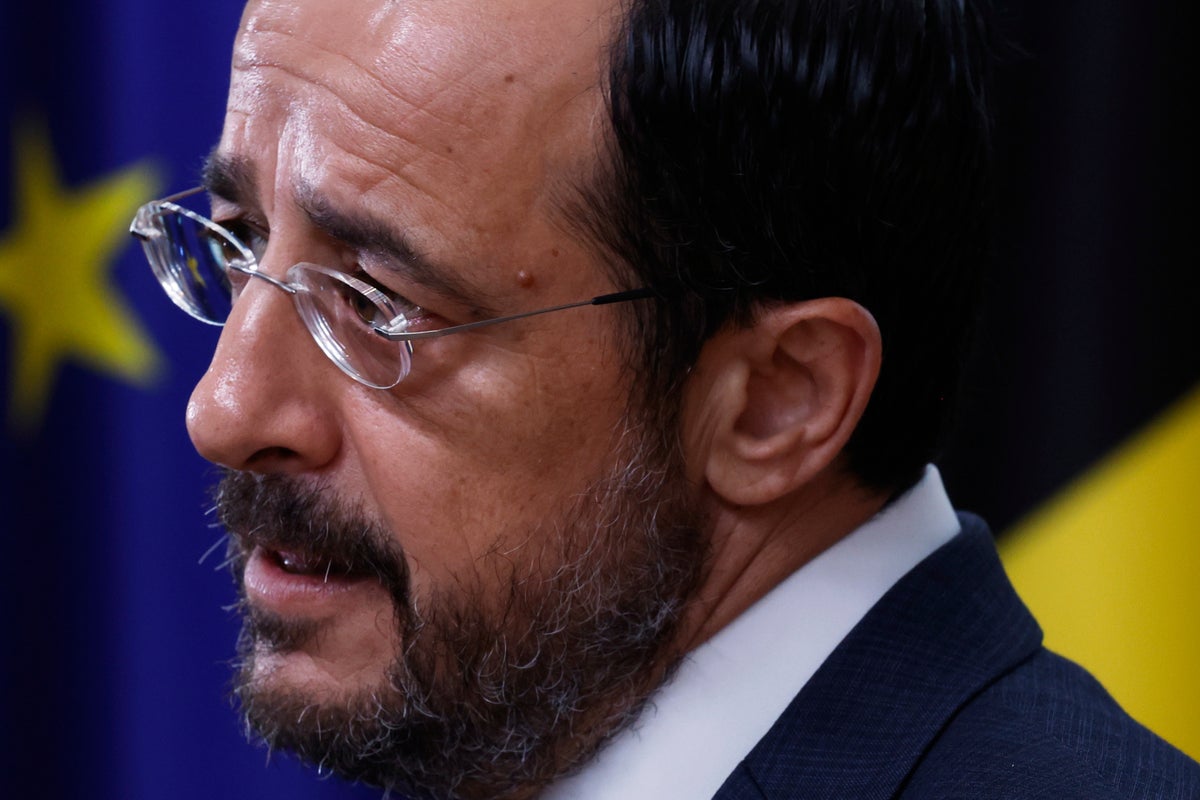From reproductive rights to climate change to Big Tech, The Independent is on the ground when the story is developing. Whether it’s investigating the financials of Elon Musk’s pro-Trump PAC or producing our latest documentary, ‘The A Word’, which shines a light on the American women fighting for reproductive rights, we know how important it is to parse out the facts from the messaging.
At such a critical moment in US history, we need reporters on the ground. Your donation allows us to keep sending journalists to speak to both sides of the story.
The Independent is trusted by Americans across the entire political spectrum. And unlike many other quality news outlets, we choose not to lock Americans out of our reporting and analysis with paywalls. We believe quality journalism should be available to everyone, paid for by those who can afford it.
Your support makes all the difference.
Read more
U.N. Secretary-General António Guterres will bring the rival leaders of ethnically divided Cyprus together again this month following a “constructive atmosphere” at an earlier meeting aimed at reviving stalled peace talks, the United Nations spokesman said Wednesday.
Stéphane Dujarric said the informal meeting on July 16-17 at U.N. headquarters in New York “will provide an opportunity to continue the dialogue and exchange views on the progress made since March.”
At that meeting, Greek Cypriot President Nikos Christodoulides and Turkish Cypriot leader Ersin Tatar agreed to trust-building measures on issues like energy, environment, opening four new crossing points along a U.N.-controlled buffer zone, youth affairs and demining.
The Mediterranean island was divided in 1974 when Turkey invaded following a coup by Athens junta-backed supporters of uniting the island with Greece. Only Turkey recognizes a Turkish Cypriot declaration of independence, and it maintains more than 35,000 troops in the island’s northern third.
Negotiations between the rivals have been stalled since 2017.
Maria Angela Holguin, a new envoy Guterres appointed, said at the end of her first weeklong visit to Cyprus in late May that Guterres “continues to push” for a resumption of peace talks.
But no breakthrough is expected at the meeting this month because Turkey and Turkish Cypriot insist on a two-state accord that Greek Cypriots flatly reject.
The agreed-upon, U.N.-endorsed framework for a peace deal has been a reunified Cyprus as a federation composed of Greek Cypriot and Turkish Cypriot zones.
Ever since his 2020 election, Tatar has been demanding a two-state deal. He faces reelection in October and says he’s running on the same two-state platform with Ankara’s full backing.
Greek Cypriots say they won’t agree to any accord that formally partitions the island, allows for a permanent Turkish troop presence, gives Turkey rights to militarily intervene or offers the minority Turkish Cypriots a veto right on all government decisions.
Despite these differences, the rivals have made some progress on trust-building measures, which also include work on a photovoltaic park inside the buffer zone and restoration work on cemeteries on both sides of the divide.
___
AP writer Menelaos Hadjicostis contributed from Nicosia, Cyprus.
